Cancel culture and woke activism are being driven by a dangerous anti-Christian ideology sweeping across the West. That’s according to the Christian Institute’s social policy analyst, whose new book on critical theory promises to help believers discern the truth
Having written books on gender ideology and the sexual revolution, it seems Dr Sharon James is unafraid of controversial topics. Her work with the Christian Institute means she’s regularly called upon to speak on divisive subjects such as abortion and assisted dying in front of churches, politicians and the wider public.
James has dedicated much of her life to providing pastoral support and teaching to Christian women (she helped establish the Fellowship of Independent Evangelical Churches women’s ministry team). Today she says Christian women need protection from attacks on what she calls the “natural family”. The culprit? Radical feminism and critical theory – both of which she fiercely opposes.
The 64-year-old may think that structural discrimination is undermining family life in the UK, but she questions the existence of structural racism. That’s a controversial and potentially polarising approach, with which many Christians will take issue. In her latest work on the impact of critical theory, James argues that dividing society into “the privileged” and “the oppressed” flies in the face of objective evidence. Her aim, she says, is to examine each issue impartially, and equip fellow believers to feel confident in speaking out on issues of policy, legislation and morality. This, she argues, is showing true love to your neighbour.
You grew up in a Christian family. How did faith become your own?
It came in stages, as is often the case. Aged twelve, I came upon a booklet by the American revival preacher Jonathan Edwards called Heaven: A world of love (Banner of Truth). I spent twelve and a half pence on the book! It just blew my mind because it described God as the God of beauty and truth. I thought: I want to know this beautiful God. When I left home to go to university, then you really are out where your faith is challenged big time. I grew in faith and assurance then.
Saying ‘there is racism’ is different to saying ‘there is systemic racism’
And you met your husband there?
Yes, which was marvellous. We finally got married – I was, I think, infused with feminism at one point and thought independence was the great goal. But my husband knew better. I’m so glad he did. We’ve been married for 37 years now.
You talk about feminism in a negative light. But Christian feminists argue that it has brought many benefits to women. The vote, the right to work, consequences for marital rape, for example. Do you see the positives?
Well, in a sense, I take the story back further. The biblical teaching that men and women are [made] absolutely equal, in the image of God has, through the years, been one of the drivers of Christians pioneering female education. Female education is the single biggest factor in equal rights for women. It’s very often Christians who’ve been at the forefront of arguing for equal opportunities. I have no argument with the first wave of feminism that argued for equal legal opportunities. It’s the second wave of feminism, from the 1960s onwards, that was so associated with the sexual revolution, the breaking down of moral norms and very much an attack on the natural family. It was those ways of thinking that, in practise, I believe damaged women.
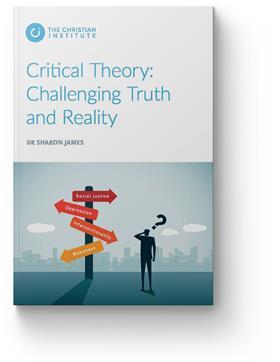
Your latest booklet is called Critical Theory: Challenging truth and reality (Christian Institute). What is critical theory, and why does it concern you?
The origins [come from] a study centre in Germany in 1923. The architects of critical theory put out a manifesto that divided knowledge into ‘traditional knowledge’, which is about facts and data, [like] physics, medicine, science, and ‘critical theory’, which is about activism. It’s about moving society to where it should be, which is exactly equal outcomes. Effectively, they said we have to pull down the structures in society that are facilitating injustice and start again. Hardwired into this was a conviction that there is no transcendent reality out there. We each make our own reality and can define our own reality. There’s no God; there’s no judgement. We define our own morality and, ultimately, our own truth.
Where I see it biting in society now is divisions – dividing people into groups and saying some groups are guilty and some are innocent. I want to hold on to the unity of the human race and the preciousness and distinctiveness of each individual. Both of those things are undermined by just seeing people in terms of their group identity.
What would you say to those who maintain that there is systemic or structural racism within British society?
Tragically, there is racism in Britain and absolutely every instance of racism is wrong and should be challenged. But saying “there is racism” is different to saying “there is systemic racism”. When you say: “There is systemic racism,” you are then saying that, by definition, every member of a certain group is guilty – and every member of the other groups are innocent.
You can’t have group guilt
When you look at how racism [has been] challenged in human societies, you find that, often, it’s been the biblical worldview behind challenges to inequality and oppression. Major social reforms have been carried out by Bible-believing Christians.
Christians should always be at the frontline of opposing injustice from a biblical perspective. God says that every human being made in his image has the moral law “written on their hearts” [see Romans 2:15]. We will all answer to him for any disdain of any human being made in his image. But it has to be equal justice for all, and it has to be an equal standard for all.
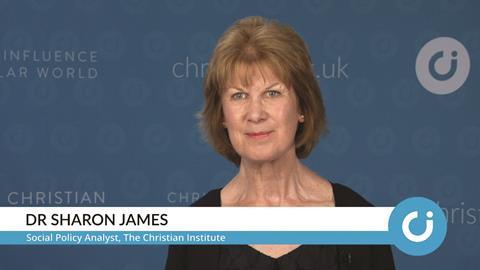
So you don’t believe in structural injustice, in that there are some groups of people who are more disadvantaged and some who are more privileged?
Well, it depends how you define structural injustice. Clearly, there are some social situations where institutions are operating in an unjust way. For example, over a million Uyghurs are being persecuted in China. There’s something deeply wrong with that system. Or the caste system that still operates in India – although it’s theoretically illegal. That’s structural. But you can’t have group guilt because there isn’t group responsibility. You have to hold individual institutions, people and actions to account. It’s that particular technical definition of structural, systemic or institutional racism that I think we have to reject because, in practise, it results in a different form of racism.
In your booklet, you make the argument that “you may be the best qualified person applying for a job, but the company has to meet diversity and inclusion targets and so you don’t get an interview”. Is that actually true? Statistics from the University of Oxford show that people from ethnic minorities have to send 60 per cent more applications to get a positive response compared to white applicants.
Well, there are many different statistics on that. I think the point is that you are using statistics, which is the right way of looking at it. One of the central claims of critical theory is that appealing to data, statistics, science or objective reality is an oppressive thing to do. You should, by definition, just take the claims of those who claim to have been discriminated against.
If you take the example of gender, the data – and observation and experience over some decades – indicates to me that companies were being pressured to take on female [recruitment] targets that don’t necessarily benefit women or men. There is such a thing as preference theory, which says that women and men are sometimes drawn to different things. The key is making sure that every individual can realise their potential.
But no one’s forcing women to apply for these jobs…
Oh no. There should always be an opportunity to apply, absolutely. But it’s the question of whether you end up with some men not being taken on because you have to let more women in.
I’d be fascinated to see if the statistics prove that, because the evidence I’ve seen is that women are disadvantaged in the workplace.
I’d happily come back to you on that. As I say, at least you’re appealing to evidence, which is something that some people would say we shouldn’t even be allowed to do.
Do you ever worry that the Christian Institute’s focus on personal morality and hot button topics such as transgender issues and same-sex marriage is reinforcing the view that evangelical churches are anti-gay and anti-women? That Christians become known for what we are against rather than what we’re for?
I went to work for the Christian Institute because I have a passion for child protection. There are structural discriminations that undermine stable family life rather than support it. Over 26 years of pastoral work, I saw the disastrous impact of that. Children are told they have sexual rights. Their innocence should be protected. When you look at the impact of the sexual revolution, the breaking down and blurring of boundaries between adult and child with regard to sexuality, well, that’s a disaster as far as child protection is concerned.
Many of the issues that the Christian Institute campaigns on have to do with family freedoms, because these are at the basis of society’s freedoms. We don’t campaign on all issues because if we all tried to do the same things, we’d all be reinventing the wheel. We want an environment where we are free to speak truth, proclaim the gospel, have our family lives without state interference and teach the gospel.
THE BLURRING OF BOUNDARIES BETWEEN ADULT AND CHILD WITH REGARD TO SEXUALITY IS A DISASTER
What is the Christian Institute doing to tackle racism?
We are putting out materials that help Christians understand that there is a creator God. Every human being is made in his image, and every human being has to be treated with respect because of that.
If you look at the most discriminated against human beings right now, you would have to admit it’s unborn human beings. So we’re putting out materials that say: “Let’s look at society as not just socially constructed – in which case we can deconstruct the family, deconstruct everything, pull it all down – but divinely constructed, divinely ordained.” We should respect the God-given pattern of family.
If you actually started supporting families, rather than putting impediments in the way of stable family foundations, that would be a huge blessing to some of the most disadvantaged groups in society.
To hear the full interview listen to Premier Christian Radio at 8pm on Saturday 21 October, or download The Profile podcast premierchristianity.com/theprofile
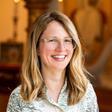












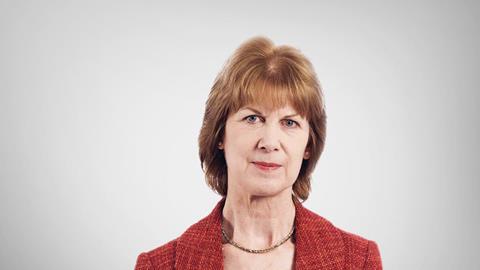

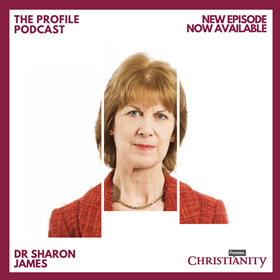
























No comments yet